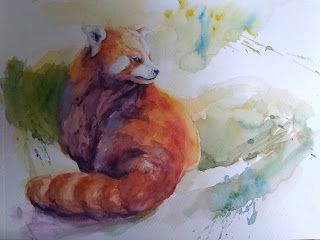Alternative Media vs PAR
While preparing the presentation next week, I stopped for a moment, defining a link between alternative media (AM) and participatory action research (PAR). The division erodes as both are based on participation for production. Alternative media, of course, is broader in definition, but AM and PAR seem to share the same paradigm—toward participatory democracy. It sounds very rosy. But in any case, people create something, which is quite exciting, and it is great that researchers begin to be aware of this dazzling experience everyone deserves enjoying.
Skimming through an entry of PAR in Wikipedia, my eyes sojourn over a paragraph about Gramsci’s notion of organic intellectuals. The author mentions the ethos of PAR is connected to Gramsci because of his emphasis on the use of knowledge gained through lived experience. But this doesn’t seem correct, because he meant by “organic” that intellectuals are formed within a social group with possession of political directiveness as well as scientific knowledge. In my understanding, politicization, not lived experience, is the key of Gramsci’s argument about intellectuals. Thus the above explanation is not convincing.
Nevertheless, I do not deny Gramsci’s contribution to intellectual establishment of PAR. Rather, politicization itself can be a linking chain between intellectuals and PAR because participation intrinsically contains a seed of politicization and intellectuals jump right into the pool. Intellectuals, thereby, can approach one step closer to lived experience brought by participants, and integrating into the society. But PAR is a method, not a theory. Taking that action doesn’t give intellectuals a free pass to politicization. Thus, PAR and Gramsci’s notion of organic intellectuals still stay far away from each other. What intellectuals can do about PAR remains their duty.
Skimming through an entry of PAR in Wikipedia, my eyes sojourn over a paragraph about Gramsci’s notion of organic intellectuals. The author mentions the ethos of PAR is connected to Gramsci because of his emphasis on the use of knowledge gained through lived experience. But this doesn’t seem correct, because he meant by “organic” that intellectuals are formed within a social group with possession of political directiveness as well as scientific knowledge. In my understanding, politicization, not lived experience, is the key of Gramsci’s argument about intellectuals. Thus the above explanation is not convincing.
Nevertheless, I do not deny Gramsci’s contribution to intellectual establishment of PAR. Rather, politicization itself can be a linking chain between intellectuals and PAR because participation intrinsically contains a seed of politicization and intellectuals jump right into the pool. Intellectuals, thereby, can approach one step closer to lived experience brought by participants, and integrating into the society. But PAR is a method, not a theory. Taking that action doesn’t give intellectuals a free pass to politicization. Thus, PAR and Gramsci’s notion of organic intellectuals still stay far away from each other. What intellectuals can do about PAR remains their duty.



Comments